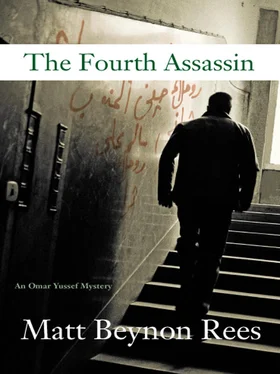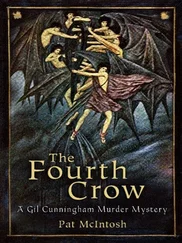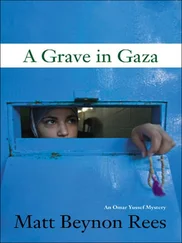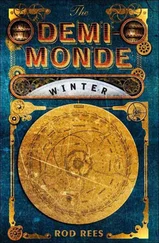Matt Rees - The Fourth Assassin
Здесь есть возможность читать онлайн «Matt Rees - The Fourth Assassin» весь текст электронной книги совершенно бесплатно (целиком полную версию без сокращений). В некоторых случаях можно слушать аудио, скачать через торрент в формате fb2 и присутствует краткое содержание. Жанр: Криминальный детектив, на английском языке. Описание произведения, (предисловие) а так же отзывы посетителей доступны на портале библиотеки ЛибКат.
- Название:The Fourth Assassin
- Автор:
- Жанр:
- Год:неизвестен
- ISBN:нет данных
- Рейтинг книги:3 / 5. Голосов: 1
-
Избранное:Добавить в избранное
- Отзывы:
-
Ваша оценка:
- 60
- 1
- 2
- 3
- 4
- 5
The Fourth Assassin: краткое содержание, описание и аннотация
Предлагаем к чтению аннотацию, описание, краткое содержание или предисловие (зависит от того, что написал сам автор книги «The Fourth Assassin»). Если вы не нашли необходимую информацию о книге — напишите в комментариях, мы постараемся отыскать её.
The Fourth Assassin — читать онлайн бесплатно полную книгу (весь текст) целиком
Ниже представлен текст книги, разбитый по страницам. Система сохранения места последней прочитанной страницы, позволяет с удобством читать онлайн бесплатно книгу «The Fourth Assassin», без необходимости каждый раз заново искать на чём Вы остановились. Поставьте закладку, и сможете в любой момент перейти на страницу, на которой закончили чтение.
Интервал:
Закладка:
“I’ll find it. Where’re you going?”
“To take Rania’s statement. I’m at your command, after all.” The detective buttoned his parka. “At the mosque, ask to speak to Nahid Hantash. He’s the top guy. May Allah ease your path.”
Chapter 14
The Arab men wished each other evenings of joy and light as they departed Maghrib prayers, pulling the hoods of their parkas over their white skullcaps. Omar Yussef leaned on the onyx balustrade by the sidewalk and looked down on the concrete staircase to the basement mosque. The last of the worshipers zipped their coats and shook hands at the door. As they reached the street, Omar Yussef called to one of them: “Peace be upon you.”
“Upon you, peace, ustaz .”
“Will we find the Honored Nahid Hantash inside?”
“He’s always the last to leave after prayers, ustaz .”
Omar Yussef descended past boarded-up basement windows and entered a short corridor. The wall was covered with posters of Palestinian children, hackneyed images of defiance and suffering, and political slogans that fatigued Omar Yussef with their posturing and sentimentality. He glanced over a photo of a burned-out car, three victims of Israeli helicopter missiles lying within, their bearded faces vaguely nauseous in death, empty eyes staring past the camera. Is this meant to promote the correct frame of mind for prayer? he thought.
He slipped out of his loafers and slid them into a wooden cubbyhole still wet from the last worshiper’s shoes.
At the end of the corridor, a sheet of prayer times laid out the schedule of devotion like a dense page of logarithms. The time for every prayer advanced by a minute or two each day as the moon shifted over the course of the month. Khamis Zeydan rapped his knuckles against the notice. “I don’t know how they have time to do anything else,” he said. “I can think of only a few things that’re worth doing five times a day, and praying isn’t one of them.”
Beyond the door, low stools surrounded a big circular water fountain tiled in fake jade and marble, where worshipers would sit to wash their feet, hands, ears, and nostrils before prayer. Khamis Zeydan turned on one of the shiny copper faucets and scooped water into his mouth. Wiping his mustache, he looked along the narrow mosque. “Do you think that’s our man?” he said.
Omar Yussef peered into the dim light from the scalloped glass light fixtures along the wall. The basement was painted white, and its carpet was gray with diagonal green stripes. At its far end was a niche decorated with the same fake marble as the water fountain and the chair from which the imam would deliver his sermons. On the floor beside the niche, his head leaning back against the wall and his legs stretched out before him, sat a dark man in his early thirties.
As they came toward him, the man brought his palm to his heart and bowed his head. “Peace be upon you,” he whispered, hoarse and calm, with the accent of Palestine.
“Upon you, peace,” Omar Yussef said. “Are you his Honor Nahid?”
The man held up his hands modestly. He wore a light suede baseball jacket, baggy jeans, and white socks. A blue stocking cap was pulled low on his brow and over his ears. He had shaved his facial hair into a thin line along his jaw and around his mouth, as though it were the scaffolding upon which a beard would later be constructed. In one eyebrow, a small scar, pale and hairless, made his eyes look ready for a scrap.
“May you feel as though you were with your family and in your own home,” Nahid Hantash murmured.
“Your family is with you.” Omar Yussef sat on the floor in front of Hantash. “Brother Nahid, I’m the father of Ala Sirhan, a friend of Nizar Jado.”
“Ah, Nizar, may Allah have mercy upon him.”
“May Allah grant you long life.”
“I’ve met your son.”
“Here in the mosque?”
Hantash’s smile was forbearing. “You don’t need to pretend that your boy is religious, nor will you have to quote the Koran to make me like you, ustaz . If you’re Ala’s father, you must be from Dehaisha Camp. I know it well. You and I are linked by our struggle to liberate Islamic land from the Occupation. That’s all that counts.”
“I saw your posters in the corridor.”
“We still must play our part, even if we’re thousands of miles from home.”
“It has more to do with playing a part than with reality.”
Hantash twitched his head with puzzlement.
“Those posters have no place in a house of worship,” Omar Yussef said. “Such images are no good for the soul. It’s sick.”
“O Allah,” Khamis Zeydan sighed.
“They’re the truth,” Hantash said. “Facts.”
Omar Yussef had vented his frustrations on the young Iraqi in the street, but he couldn’t afford to be so harsh with Hantash. Calm down, Abu Ramiz, he told himself. You need this man on your side. “What would you expect an American to think if he saw your posters?”
“Americans don’t come here.” Hantash swung a languid arm around the basement. “They wish we didn’t exist. We aren’t even allowed to broadcast the call to prayer on loudspeakers, because of their noise laws. But if they did come, I’m sure these images of martyrdom would remind them of their Christian churches. They have a big model there of a man being tortured to death. They call it a crucifix. Some of them hang it over their beds when they sleep-and you say I’m sick?”
Hantash drew his legs up and linked his fingers around his shins. The knuckles were pink and white and scarred, like the skinned knee of a child, reminding Omar Yussef that the man had done battle with the gangs of Brooklyn.
“Americans aren’t innocent of crimes against Muslims,” Hantash said. “In Iraq, they kill thousands. The U.S. government’s secret jails are full of men whose only offense is to have obeyed Allah. On the streets, Islam is mocked and hated. It’s hard for us to live here.”
Khamis Zeydan offered a cigarette to Hantash, who waved it away with a gesture that showed he didn’t object to his guest smoking. “Where are you from, Brother Nahid?” the police chief said.
“I was born in Hebron. My family left the West Bank when I was a teenager.”
Hard-headed and stubborn by reputation, the Hebronites, Omar Yussef thought, and violent.
“May Allah bless your town. Forgive my friend for his ill humor,” Khamis Zeydan said. “His son has been arrested, and he’s very nervous about him.”
“Arrested?”
“He won’t give an alibi for the time when his roommate was killed.”
“He’s a suspect? That’s ridiculous,” Hantash said. “Ala wouldn’t hurt anyone.”
Omar Yussef forgot his antagonism and warmed to Hantash with a desperate swiftness. “I want to find out more about Nizar and Rashid,” he said. “My son tells me there was some sort of conflict between them.”
Hantash was silent. His eyelids were low and lazy.
“The police also think Nizar’s death may have had something to do with drugs,” Omar Yussef said, “and that you might be able to give us some leads.”
The young man’s eyes flickered with hostility.
Khamis Zeydan whistled impatiently. “My friend means that, as a community leader, you know what happens on the streets,” he said. “Certainly he doesn’t mean that you’re involved in drugs.”
“No, of course.” Omar Yussef cringed and wrung his hands.
Hantash focused hard on his scabbed knuckles. “The police have been here already,” he said. “We’re accustomed to their harassment.”
“Do they suspect you?”
“The Arab detective Abayat suspects all Arabs. You ought to remember that, ustaz . Don’t trust him just because he calls you ‘uncle.’” Hantash stroked his fingers across the carpet. “In truth, the police have no reason to suspect me. I used to be a gang leader. I led the PLO. We thought that was a good joke- to name ourselves after another gang of Palestinian hard men. But I put an end to it after the attack on the Twin Towers.”
Читать дальшеИнтервал:
Закладка:
Похожие книги на «The Fourth Assassin»
Представляем Вашему вниманию похожие книги на «The Fourth Assassin» списком для выбора. Мы отобрали схожую по названию и смыслу литературу в надежде предоставить читателям больше вариантов отыскать новые, интересные, ещё непрочитанные произведения.
Обсуждение, отзывы о книге «The Fourth Assassin» и просто собственные мнения читателей. Оставьте ваши комментарии, напишите, что Вы думаете о произведении, его смысле или главных героях. Укажите что конкретно понравилось, а что нет, и почему Вы так считаете.












